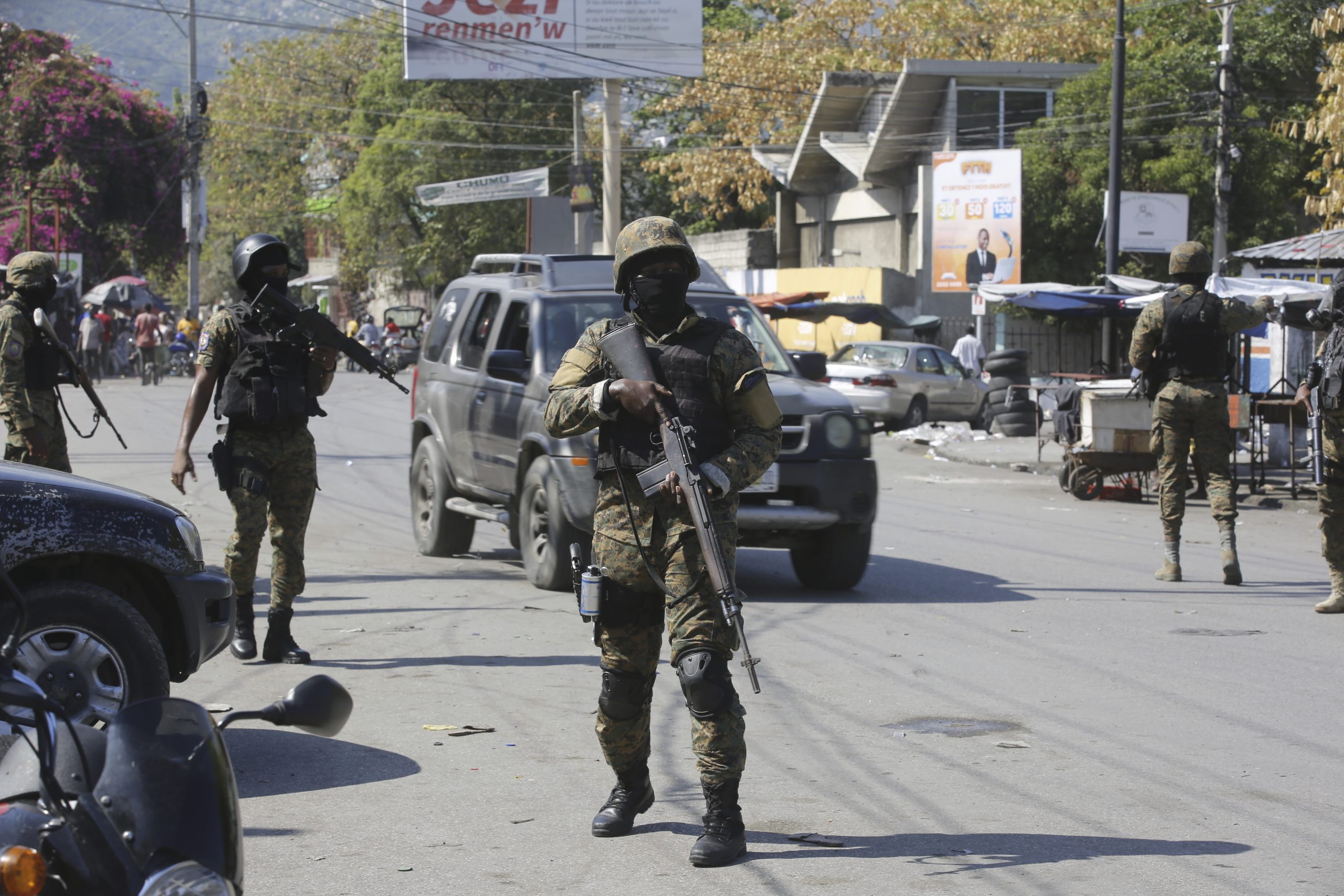On Sunday, the U.S. military announced its deployment of additional forces to bolster security at the U.S. Embassy in Haiti and facilitate the departure of nonessential personnel.
According to the U.S. Southern Command, aircraft were dispatched to the embassy compound, indicating the involvement of helicopters. Notably, the military emphasized that no Haitians were aboard these aircraft, dispelling any speculation about the evacuation of senior government officials amidst escalating gang attacks in Haiti.
The vicinity surrounding the embassy in Port-au-Prince, Haiti’s capital, remains largely under the control of gangs.
“This airlift of personnel into and out of the Embassy is consistent with our standard practice for Embassy security augmentation worldwide, and no Haitians were on board the military aircraft,” stated the Southcom.
Typically, nonessential personnel include diplomats’ families; however, the embassy had previously instructed the departure of nonessential staff and all family members in July. Therefore, the personnel flown out of the embassy might have been rotating, replaced by fresh staff.
The U.S. reiterated its commitment to supporting Haitian law enforcement and coordinating a U.N.-authorized security deployment, albeit these endeavors have yet to yield results.
Ariel Henry, Haiti’s embattled prime minister, recently traveled to Kenya seeking U.N.-backed deployment of a police force from the East African nation to combat the gangs. However, in January, a Kenyan court deemed such a deployment unconstitutional.
Deployment of U.S. Forces to Haitian Embassy for Nonessential Personnel Evacuation (Credits: The Detroit News)
Henry, facing pressure to resign or establish a transitional council, remains unable to return home. After failing to land in the Dominican Republic, he arrived in Puerto Rico on Tuesday.
The Dominican President’s office stated on Saturday that Henry was unwelcome in the Dominican Republic for safety reasons. The Dominican Republic, sharing the island of Hispaniola with Haiti, has closed its land border.
The security situation in Haiti was described as “totally unsustainable” by the Dominican government, posing a direct threat to its national security and stability. Urgent implementation of a peacekeeping force was urged to restore order.
Caribbean leaders have called for an emergency meeting on Monday in Jamaica to address Haiti’s dire situation, inviting the U.S., France, Canada, the U.N., and Brazil.
Efforts to form an umbrella transitional unity government in Haiti have been ongoing, with CARICOM emphasizing the urgent need for consensus among political actors.
Henry agreed in February to hold general elections by mid-2025, while the international community seeks a foreign armed force to combat gang violence.
Meanwhile, in Port-au-Prince, police and palace guards attempted to regain control of streets following major gang attacks on several police stations. The relentless gang violence has paralyzed the country for over a week, leading to shortages of basic necessities.
Despite the state of emergency and nightly curfew extensions, Haitians continue to face challenges, seeking refuge in government buildings amidst the ongoing violence.
